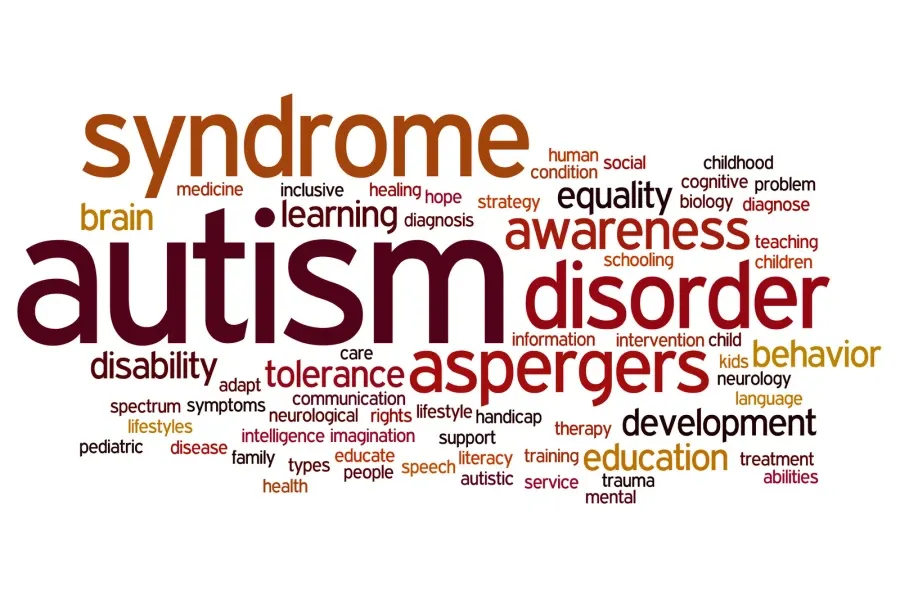On the Care and Maintenance of Larval Autistes
I know I’ve had some mean things to say about how Autism is treated. This time, it’s all about how to raise your Autiste…

No, wait, don't click away! I'm not angry this time, I promise. I want to share some successes and good feels, this time. I know I've had some mean things to say about how Autism is treated. This time, it's all about how to raise your Autiste Larvae in an environment sympathetic to their needs. And by 'larvae', I mean child. It's an internet joke and all the fans of Terrible Elf Larvae will get it.
I have very specific jokes, sometimes. I have to entertain myself and this is what happens as a direct result. If you want to educate yourself, this is where it all started: link here. We good? Cool. Okay. Moving on.
So you, a nypical parent, have just been told that one or more of your guided small people have been diagnosed as autistic. You might be wont to freak out, given the absolute reams of bad media about it. I have gone off about this multiple times in the past, primarily about the alleged burden an Autistic Child is often represented as.
Forget that noise. Okay? You don't have to freak out, you don't have to panic. You especially don't have to wail about how Autism "stole your baby". No. Stop that. Your baby's right there. They just happen to be autistic. It's going to be a little more work for you to learn how to communicate things with each other.
The great news is that there are loads of tools for that. Flash cards, sound boards, apps... all the cool stuff that didn't exist when I was a little nugget and could have used some simple understanding. There's Intensive Interaction - which is a lot of emotional work, but it is super effective. That's more or less all the technical stuff covered.
Autistic kids are different, but that doesn't have to be scary. You can learn how to understand things from their perspective, and find work-arounds of every kind. Every Autistic kid is different, just like every Nypical kid is different. You learn, you adapt, you manage things. That's the way of life.
Important Lesson #1 - Don't Force It
This seems harder to learn for a lot of Nypicals, given that there is a huge amount of narrative focussing on a cure [often made by snake-oil salespeople] or methods to make your kid behave like a nypical. There's alleged treatments like ABA Therapy that involve forty hours a week of intensive training that basically teach your children how to Mask everything that's going wrong for them.
Masking is basically acting. The person who is Masking is concealing any inner turmoil so that all appears to be well. The entire 'internal screaming' meme collection is more or less what Masking is. Except there's a greater amount of feeling like the whole world is falling apart for the person doing the Masking. It's a great deal of mental and emotional labour and it's incredibly taxing to do for extended periods of time.
Sure, they'll appear normal, and if all you care about is appearances, maybe you'll be satisfied with that. I might also suggest that maybe you're doing parenting wrong, but I promised I wasn't going to be angry for this particular piece. Ahem.
You can't -and shouldn't- force a neuroatypical kid to act like a neurotypical one. Just like you can't -and shouldn't- force anyone to do something that skeevs them out. Same principal, same net effect. Your little Autiste is not going to love what you love, and they're not going to fit into the plan you made for them, and that's okay. You can improvise a new plan together.
The best plans change according to new circumstances.
Important Lesson #2 - Share
Yes, you can share the things you love with your Autiste. Don't be upset if they're not impressed. The important part is letting them know it's okay to love things. Sharing the good things via quality time can make bonding easier. If you can talk about things, even better.
Share stuff with your Autiste and they will share stuff with you. It's simple communication. Now, as a Nypical, you may not be prepared for a five-hour infodump about your little Autiste's cool new thing, and setting limits on the very small ones can be trouble. Sometimes you have things you need to concentrate on. Sometimes, you have had enough about Wellonov's Amazing Splat-tacular Goof-fest Show [I made that up] and all the weird characters.
I get it. I do. There are some things my own larvae adore and I can not stand an inch of. How to set limits without alienating your Autiste is a tricky line to walk. You will absorb more than a passing knowledge of Wellonov's, just by pure osmosis. Trying to appreciate whatever it is can be helpful, but if the whole thing turns you off...
Then it's time to introduce the whole concept of Different People Like Different Things. By now, you've likely discovered one or another foodstuff that's a huge sense-issue to your Autiste. [If you haven't, then sense issues are when you find a food disgusting not just by taste, but by texture, look, or smell. All the senses can have an impact on how Autistes enjoy or despise a thing] If you like that, then you can use it as a frame. Even if you both hate it, you can use it as a frame. Let's use Blueberries as an example...
"I know you love Wellonov's and want to talk about it, but I just do not like it. You know how you hate Blueberries? Wellonov's is like Blueberries for me."
Or sometimes you've had enough of Wellonov's and it has to be, "I have had enough of Wellonov's tonight. My head/ears are full and don't want any more." But never make the kid feel bad for loving it. You love your kid, and their obsession makes it relatively easy to get them gifts - even if you totally despise Wellonov's.
Important Lesson #3 - Permission
Given the recent spate of troubles with grabby people and rude people and people who should keep their hands to themselves, teaching consent is more important than ever. Even non-verbal kids can know about consent. It's not difficult.
So another step in the whole sharing thing is permission to share. Parents can begin with, "I found something I think is cool," and then ask the young Autiste if they want to see/hear/experience the thing.
Home science experiments are great for this, because ordinary household chemicals - handled responsibly - are always awesome. My family and I invented baking soda rockets by accident and it was enormous fun. Similarly: oobleck, play-dough, and slime are all fun things you can make at home under proper supervision.
Trust me on the proper supervision part. Small Autistes can take home chemistry or other such activities to extremes you may not be prepared to walk in on. Just as technology is not a babysitter, kits are not babysitters either. We've all heard the story about that kid who burned their skin off because they were making slime for hours on end. That's because there wasn't a parental figure around to tell them when enough was enough.
Permission also allows your Autiste to talk about things that bother them. Supermarkets always seem to be a big trigger for a lot of kids. They can talk about not liking the people, the smells, the lights, or the sounds. Sense issues need work-arounds. Seeking permission to try those is important, too.
Your Autiste may not like a certain type of headphone or earbud. They might not like sunglasses. Whatever work-arounds you find together, finding them together is the important part.
Communicating - however you communicate - is important. It's way more important to Autise Larvae than it is for nypical kids.
Then again, I'm of the opinion that communication is a vital part of parenting anyway. You should communicate with your kids. You're raising little humans, not fashion accessories and certainly not robots who do what you say. They'll have their own lives in good time, and your job is to help them achieve that.

